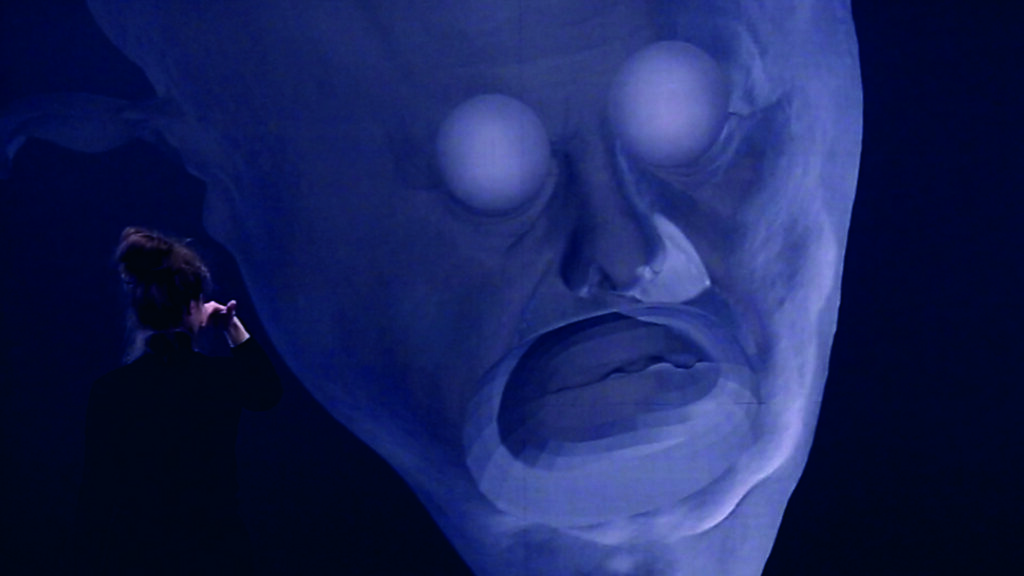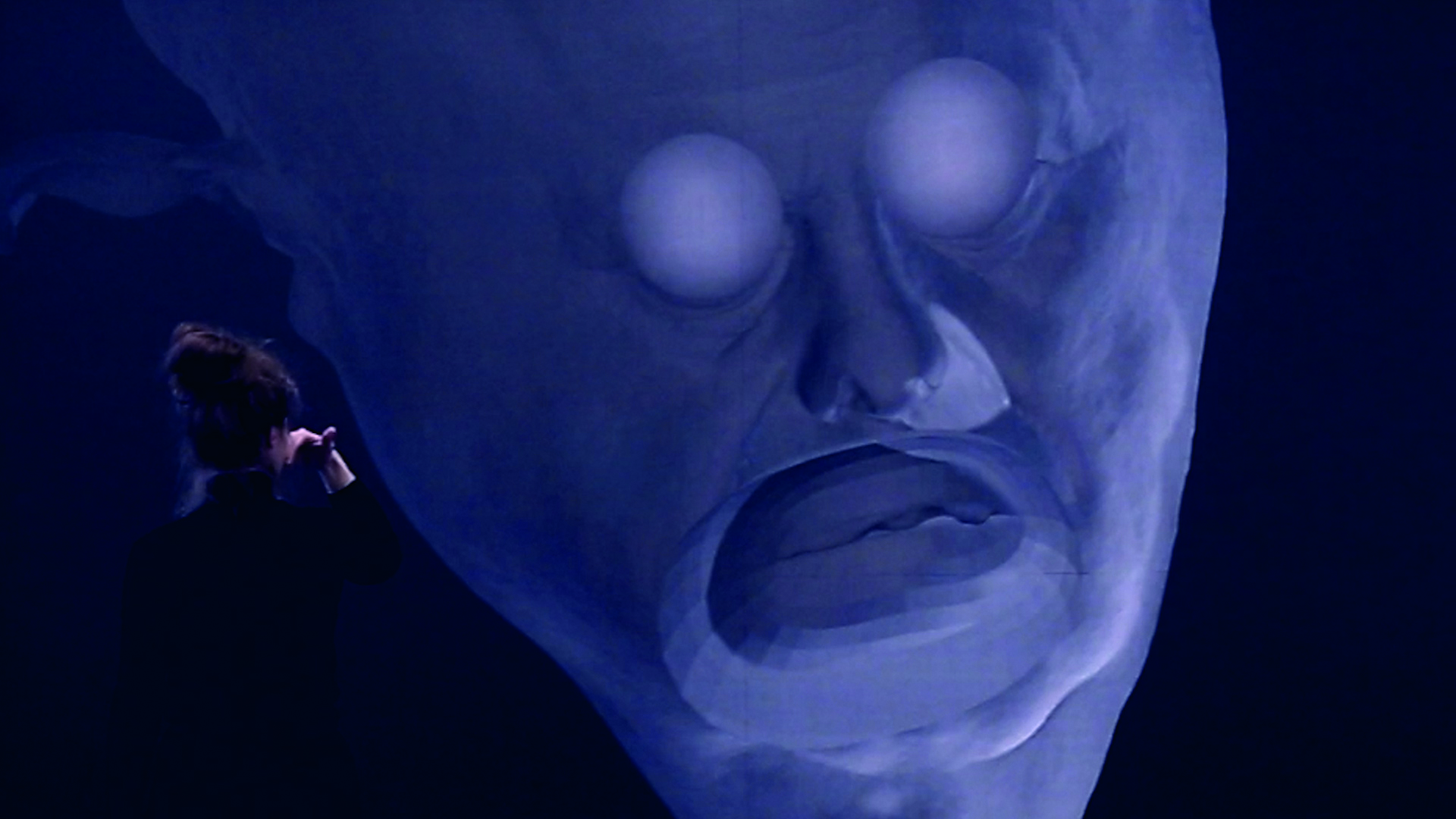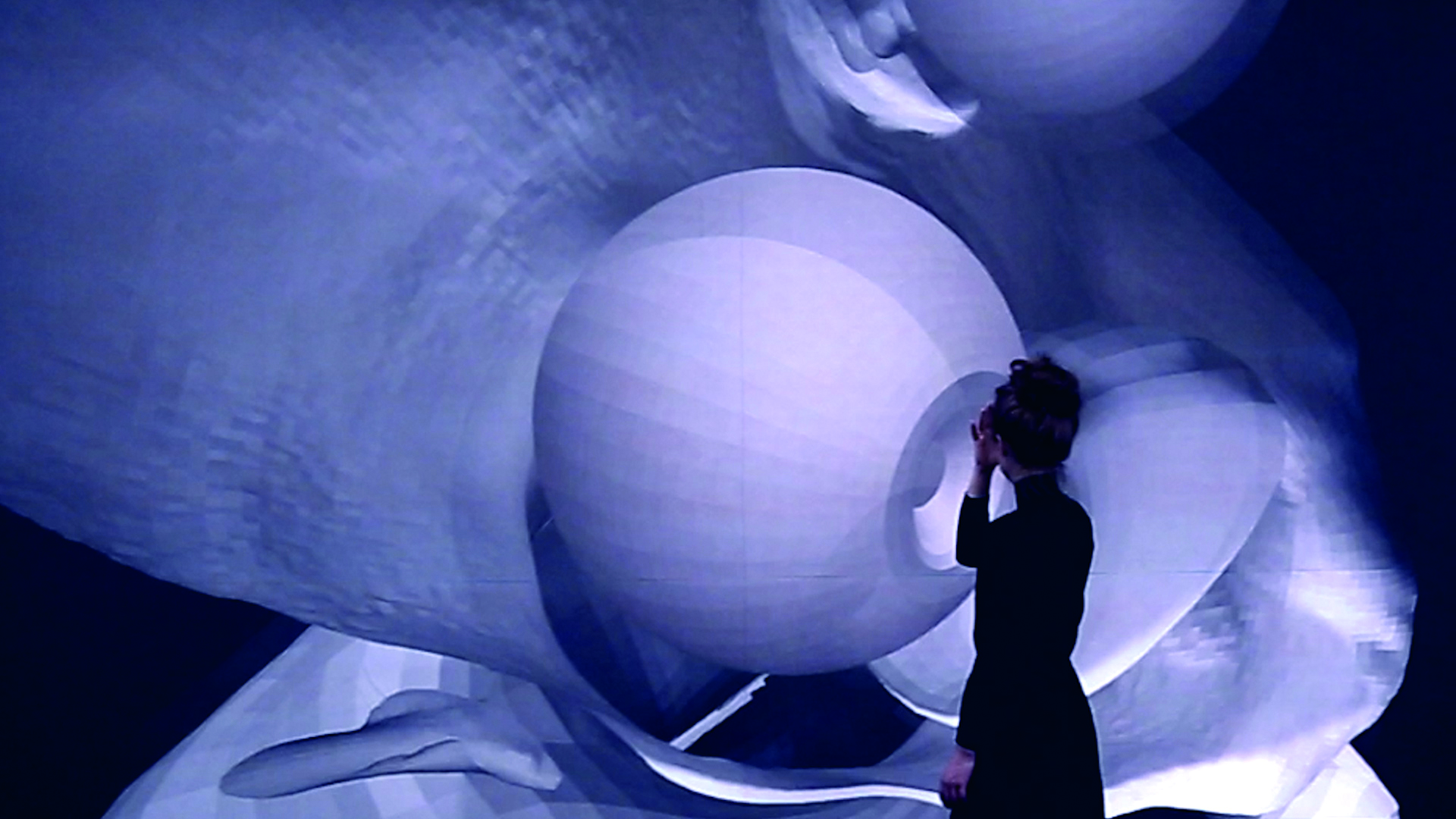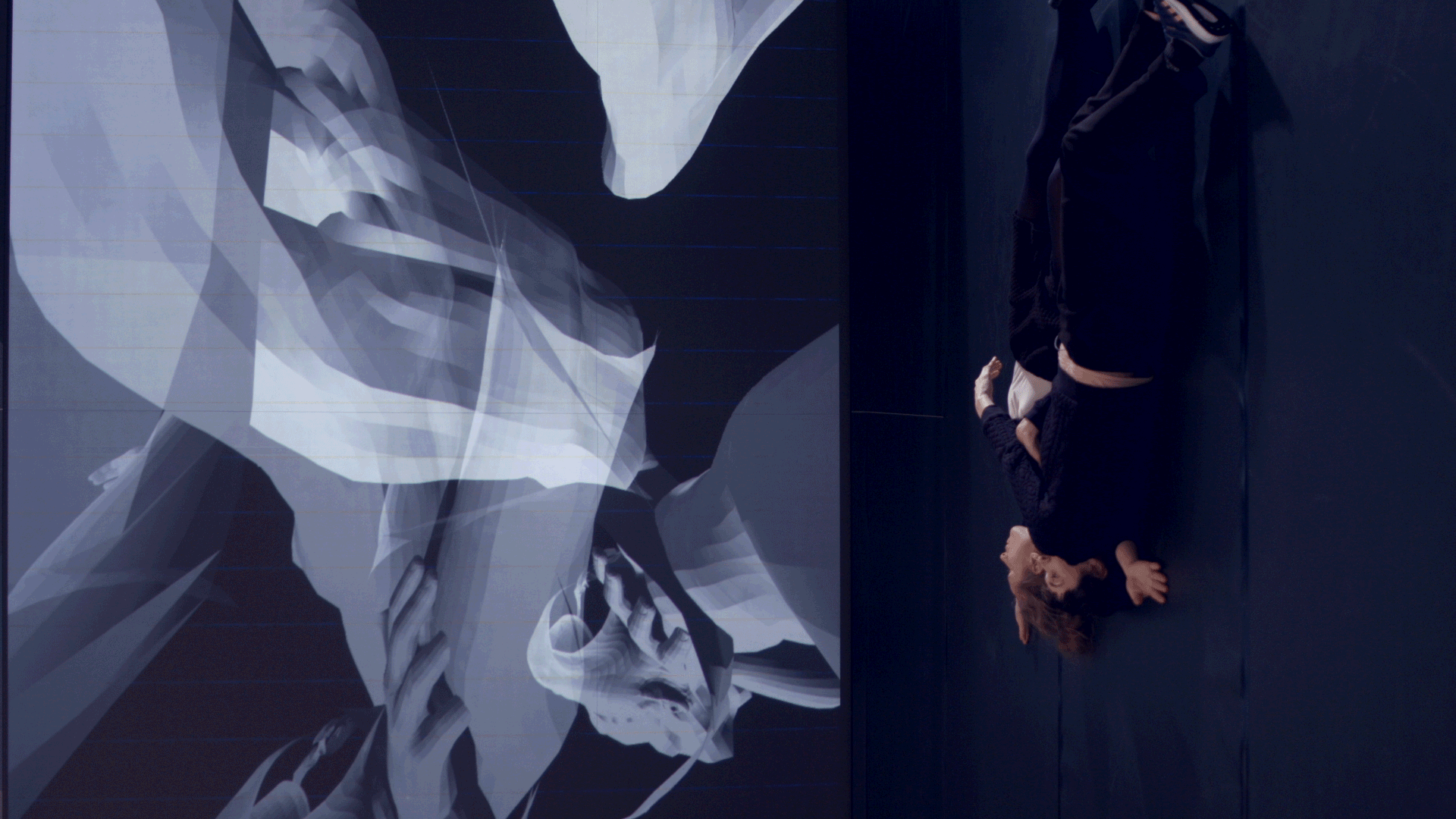INTRA SPACE
is an experimental zone, set up to explore diaphanous relations between virtual figures, humans, technical equipment and machines. INTRA SPACE can be read as a spatial transposition of the theoretical concept of “intra-action” introduced by philosopher, theoretical physicist and feminist scholar Karen Barad. Her philosophical framework of “agential realism” views the world as a dynamic, relational structure in which intra-actions function as boundary-making, material and discursive measurements in the unfolding of matter and meaning. INTRA SPACE produces a transformative, differential and resilient space of emergence where apparatus, human bodies and digitally constructed figures become diaphanous to each other. A sensorium for embodied experiences, where architectural processes coincide with bodies of the apparatus, the virtual, the engineers, the visitors, the machines and cameras. INTRA SPACE accommodates instability and indeterminacy as a dynamic, experimental framework. It allows for critical looks at the potentials of both the digital and the human to mutually enhance their functionality, their exposure in artificial and real spaces, their social interaction, their self-perception and knowledge. It offers a technical and conceptual infrastructure, a disposition for equal encounters between digital, machinic and human sensoria. The resulting differentiated perspective, spanning from a single point of touch to a sensory space, negotiates the body in motion as an immediate, perceptive entity in relation to its surroundings. * INTRA SPACE, artistic research project funded by FWF/PEEK (AR299-G21) 2015-2017, a project led by Wolfgang Tschapeller, Academy of Fine Arts Vienna.
BIOGRAPHY She studied contemporary dance at the Hogeschool voor de Kunsten Amsterdam, choreography and visual arts practices at Dartington College of Arts (UK), art and architecture at the Academy of Fine Arts Vienna as well as at the University of Arts Berlin. She is Senior Scientist at the Institute for Art and Architecture, Academy of Fine Arts Vienna where she is completing her PhD. Since 2012 she has collaborated with Wolfgang Tschapeller on artistic research, exhibition, design and publication projects, among others installation, catalogue „Hands have no tears to flow“ Austrian Pavilion/Biennale Venice, Fine Arts Library at Cornell University Ithaca, NY, exhibition „OSIRIS – World 1“ ORIS House of Architecture Zagreb, lecture series „What beings are we?“, and artistic research project “INTRA SPACE” at the Academy of Fine Arts Vienna as well as editor of the peer-reviewed publication “INTRA! INTRA! Towards an INTRA SPACE” published by Sternberg Press/Schriftenreihe Academy of Fine Arts Vienna (forthcoming in 2020). 2019-2020 she is co-curating with Marina Gržinić and Sophie Uitz the exhibition „Stories of Traumatic Pasts“ at the Weltmuseum Wien, as part of the artistic research project „Genealogy of Amnesia“. From 2021, she will be collaborating with Wolfgang Tschapeller and Vicki Kirby on the artistic research project „Unstable Bodies“.
Otherness PhD – Entanglements of the digital, technical and physical self in the artistic research project INTRA SPACE supervisor: Wolfgang Tschapeller, Institut für Kunst und Architektur / 2nd supervior: Vicki Kirby, University of New South Wales
Correspondences with erratic bodies offers a critical reading of a kind of “mediated intimacy” between virtual, engineered, machinic and other beings. The proximity of and diffusion with the technical/virtual and the (human) body, the mutual sharing of and caring for their surfaces, contours and boundaries, imprints itself into everyday life. A technical infrastructure developed during the artistic research project* INTRA SPACE allowed for the meeting of human and engineered beings, thus serving as the rehearsal site for a shared physical practice. Through revisiting, retracing and remembering these rehearsals, the fundamentals of this physical practice will be identified and formulated as a system, albeit an open one. Leading to an archive encompassing the techniques, grammars and correspondences between these beings. The analysis and interpretation of the archived material is additionally intended to offer the possibility of its use as an instrument for practicing other modes of perception, ones of multiple eyes, shared and shifted senses/sensors and unfamiliar timings. This process will involve a contextualization of the embodied form of knowledge with concepts of translation, of otherness and of the diaphanous, as points of departure for discussing forms of positionality, presence, and attention in relation to the physical practice. Considering a body that exists only in interaction with other bodies, and at any point could become another. How is this process of embodiment altering one’s position of being in and seeing the world? How does a mode of perception that is constructed, erratic, and, most importantly, shared, transform living, moving, and speaking with each other? * Tschapeller, Wolfgang. “INTRA SPACE, the reformulation of architectural space as a dialogical aesthetic” (2015-2017), artistic research project at the Academy of Fine Arts Vienna, funded by the Austrian Science Fund FWF/PEEK AR299-G21.
for more information please visit
WID Lecture #3 mit Christina Jauernik
foto © Ludwig Löckinger / INTRA SPACE, 2017
foto © Ludwig Löckinger / INTRA SPACE, 2017
foto © Ludwig Löckinger / INTRA SPACE, 2017




